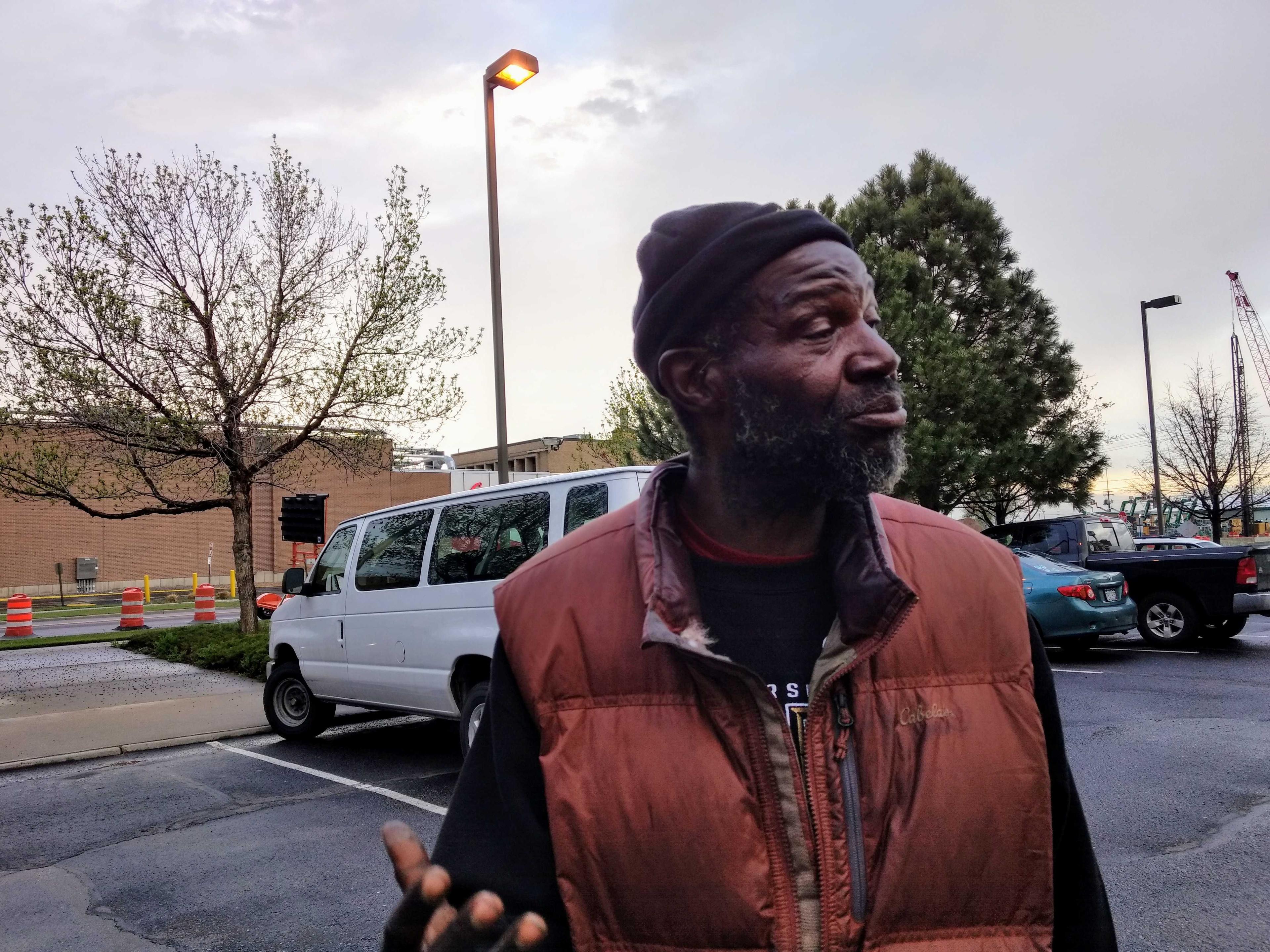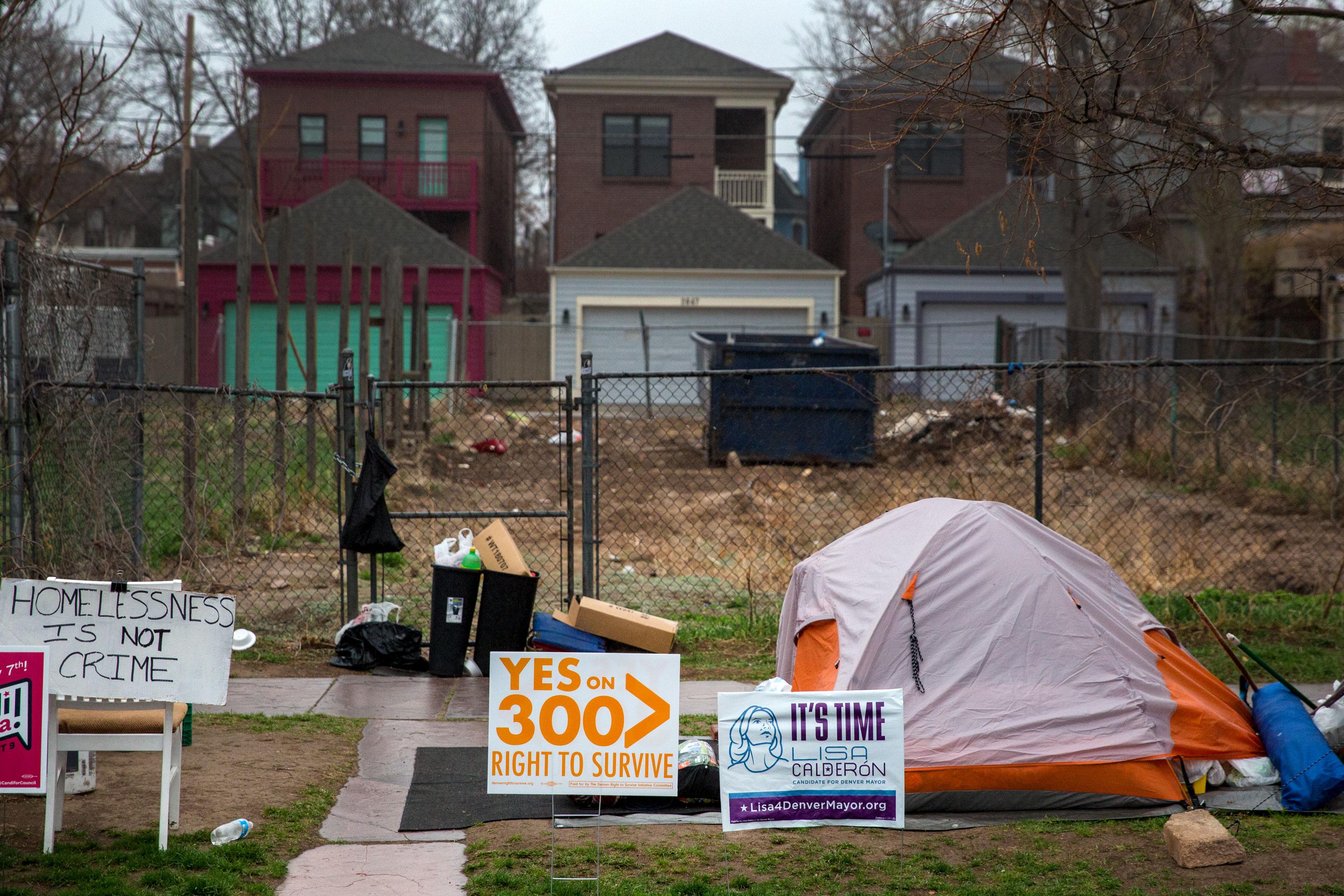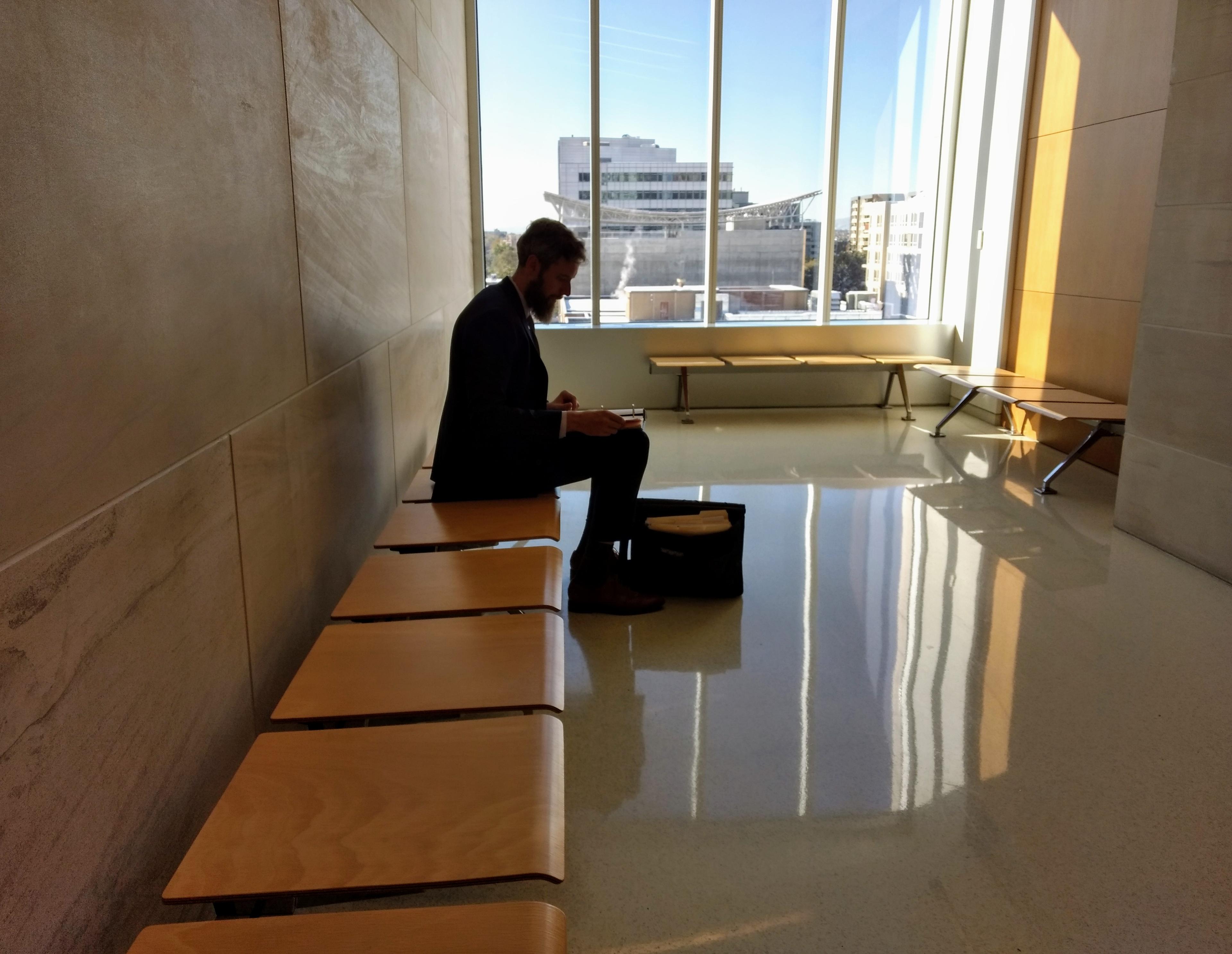An activist's frustration with Denver's ban on urban camping was evident in court, as it had been along the South Platte River when he received a citation for violating the municipal law that makes it a crime to eat, sleep or store belongings while sheltering in public with tents, tarps or even blankets.
At Friday's hearing in Denver County Court, Jerry Burton, who has lived on and off the streets of Denver for decades, turned that ticket into an opportunity to argue with passion and sometimes poignancy against the ban.
The Denver City Council adopted the measure in 2012 and Denverites overwhelmingly endorsed it earlier this year by voting against its repeal. Burton is seeking to have the charge he faces dismissed, arguing the camping measure is unconstitutional.
"This is about rights," Burton, a 57-year-old former Marine, said from the witness stand Friday. "Rights. Rights. Rights."

Burton's critique of the camping ban includes that it is unconstitutional to arrest people for living on the streets when shelters are inadequate. He also argues that the law is unequally enforced. Burton and other witnesses testified that while they have repeatedly been asked to move along while doing things such as eating lunch while sitting on a blanket, they have never seen police approach people who appear more affluent engaging in similar activities.
In his cross-examination of the witnesses that Burton's attorney Andy McNulty called Friday, Assistant City Attorney Eric Reece's questions sketched out a counter-argument with four bullet points: rather than criminalizing homelessness, police try to avoid issuing citations under the camping ban; some of the issues witnesses other than Burton raised had to do with trespassing laws, not the camping ban; homelessness is so ill-defined that it's hard to say that those experiencing it are being targeted; finally, the city has enough shelter beds but some people choose not to take advantage of them.
"That's an issue," Judge Johnny Barajas said in court Friday about the question of whether the city's shelters were adequate. "That's where the city has basically to present their evidence."
Barajas heard about four hours of testimony Friday, including about an hour from Burton. Barajas will resume hearing from witnesses Oct. 18. The city indicated it would next week call Chris Conner, director of the city agency Denver's Road Home that coordinates homelessness services, to talk about efforts to address poverty and homelessness. Other city witnesses and expert witnesses for Burton are also expected to testify. Barajas will hear a summary of arguments from both sides before releasing a written decision that could end the case or return it to the narrow question of whether Burton broke the law and if so what punishment he should face.
"I'd rather be slow and deliberate on this because it's a very important issue," Barajas said.
Friday, in a tense exchange, Reece said police had not wanted to cite Burton for violating the camping ban. Reece asked Burton to review a video of his April 29 encounter with police in which an officer could be heard asking Burton to take down his tent and saying: "Here's the deal, Jerry: I don't want to give you a ticket."
Burton responded to Reece that if he had taken his tent down, he would not be in court challenging the camping ban.
"We were trying to fight the constitutionality of this," he said.
"I would do the same thing tomorrow. It's unconstitutional and you know it's unconstitutional because we're not providing people what they need," he said.
Denver police have argued that the very few warnings, citations and arrests that have been issued under the camping ban indicate it was being used not to criminalize homelessness, but to ensure people living on the streets are offered help.
Under the law, police officers are to prioritize getting people to comply simply by asking, and to try to get help for those who need it. According to data compiled by Denver police, between June of 2012 and January 2019 officers who on more than 12,000 occasions have approached individuals under the camping ban have rarely even issued a written warning.
The advocacy group Denver Homeless Out Loud points to those same figures -- thousands of encounters with police -- as evidence that being asked to move along is a constant and stressful prospect for people on the streets. Advocates say that until the city has enough housing that poor people can afford, those who do not want to sleep in shelters should be able to camp in public.
Burton and other witnesses Friday described the city's shelters as chaotic, frightening places. Among the first witnesses were two women who spoke about the difficulty of getting to shelters before curfews because of their work schedules.
Service providers have said women, couples and young people don't have enough shelter beds. In recent years the city and shelter providers have taken steps to create more flexibility to better serve those in need. Earlier this week, for example, City Council adopted new zoning rules to make it easier to build tiny home villages as alternatives to traditional shelters.
Denver Homeless Out Loud members including Burton led Initiative 300, which would have overturned the camping ban during May's citywide election. Opponents had said Initiative 300, also known as the Right to Survive, would have limited the city's ability to protect health and safety while doing little to alleviate the plight of people experiencing homelessness.
Even groups that provide services to unhoused people had opposed Initiative 300, saying that while they too wanted to see the camping band overturned, they feared Right to Survive was so vaguely written that it could have limited their ability to help those in need. Some 80 percent of voters rejected the measure.
During the campaign, Burton led the establishment of a tent camp in Curtis Park, hoping to demonstrate that such communities could be clean and well-run and their residents good neighbors. Police broke up the camp under circumstances Burton attributes to tensions with another group of people experiencing homelessness. Burton had to pause to regain his composure as he described the end of his camp.

"Sixty percent of the people that were staying there, they had jobs. They loved staying there," he said. "If that camp was still up and standing there, a friend of mine would not have taken her life."
He and several other people went from Curtis Park to a spot along the Platte River near the Salvation Army's Crossroads shelter in Five Points, where Burton was ticketed.
"We were all tired" during that early morning encounter with police, he recalled during his testimony Friday. "We had been moved around. We had been stressed all that day.
"I was not out there camping that night. What I was doing was surviving until the next day."
"I'm an activist," Burton said. "If I have to go to jail because I refused to take down my tent, so be it."













